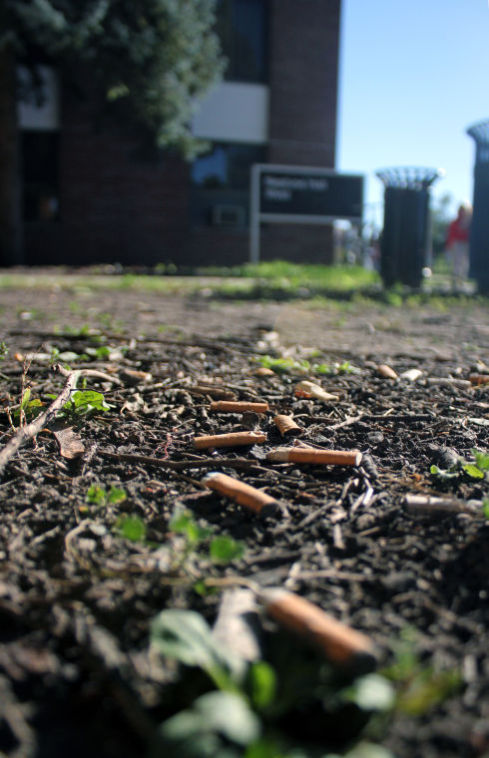Task force to help NIU be smoke-free by July
November 12, 2014
An NIU smoking ban task force is creating initiatives to ready the campus for the Smoke-Free Campus Act by July 1.
The Smoke-Free Campus Act is a piece of legislation signed in August by Gov. Pat Quinn to prohibit smoking on campuses of all state colleges and universities starting July 1. University officials created the task force in accordance with the act, and the task force met for the first time Friday.
NIU spokesman Paul Palian said the first goal of the task force is to get feedback and provide opportunities for people to participate in the implementation of the act.
“It’s important to have community input, but what we do have is a great opportunity,” Palian said.
Deborah Haliczer, assistant vice president of Human Resources, said until the act goes into effect, the task force will compile resources to help campus constituents quit smoking. Members will write the university’s policy on the ban, distribute promotional materials and educational resources about the new law and meet with focus groups of staff, faculty and students to look at what can be done to accommodate those who smoke and solicit what kind of resources smokers would like assistance with.
Haliczer said the smoking ban will apply to all campus areas except streets when people are driving through or parking lots when people are in their cars with the windows shut; however, Haliczer said the policy could pose issues for people who don’t have time to leave campus.
“It will certainly be an inconvenience and will be distressing to many with a strong smoking habit,” Haliczer said. “I have heard from students, as well as faculty and staff, ‘… I have a right to smoke, … I follow the rules and now you’re saying I can’t even smoke on a sidewalk? What will I do?’”
Haliczer said she hopes the policy will encourage smokers to take advantage of campus resources like Health Enhancement’s Xtreme Air program and the Employee Assistance Program, which help people kick their habits.
“We’re hoping to avoid any sort of enforcement need,” Haliczer said. “And so our ideal would be self-enforcement: that everyone understands that that’s the policy and that we won’t have to have any consequences for anyone.”
Asra Razvi, senior communicative diseases major, said he prefers a smoke-free campus, but he sympathizes with people who will have to take their habit elsewhere.
“I’ve never smoked in my life, so I’m for it,” Razvi said. “But, I know people that do smoke who would have a problem with it.”
Food Services employee Sandy Bonebright said although she doesn’t think the ban is fair, she can see its potential benefits.
“I am trying to quit because I’ve got a new grandson,” Bonebright said. “So, maybe it’ll give me more incentive to quit.”













